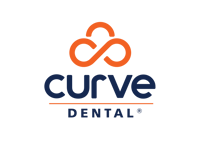Dental Clinic Software: A Complete Guide to Modern Practice Management

In today’s fast-paced dental industry, running a clinic efficiently requires more than just clinical skill. Patient expectations are higher, administrative tasks are more complex, and competition from both private practices and dental service organizations (DSOs) continues to grow. To thrive, practices need more than just good dentists—they need smart systems.
This is where dental clinic software comes in. By digitizing scheduling, billing, charting, and patient communication, the right software allows dental teams to spend less time on paperwork and more time delivering excellent care.
In this guide, we’ll explore what dental clinic software is, why it matters, the key features to look for, and how cloud-based solutions are transforming dental practice management.
What Is Dental Clinic Software?
Dental clinic software is a digital platform that helps dental practices run more smoothly. It combines clinical, operational, and financial tools into a single system, making it easier to manage the day-to-day demands of a dental office.
Typical features include:
- Dental scheduling software for appointment booking and confirmations
- Dental charting and perio charting tools for clinical documentation
- Billing and insurance management for faster claims and payments
- Patient communication tools, including text, email, and even mailing integrations
- Analytics and reporting to track production, collections, and patient flow
By uniting these functions, practices avoid the inefficiencies of juggling multiple systems or outdated paper-based workflows.
Why Dental Clinic Software Matters
Dental teams face a constant balancing act—providing excellent care while keeping the business side of things running smoothly. Without strong systems, practices may struggle with:
- Missed appointments and scheduling chaos
- Delays in insurance claims and collections
- Inefficient patient communications
- Errors in clinical documentation
- Limited visibility into financial performance
Dental management software addresses these challenges by creating a “single source of truth” for patient and practice data. With automation, built-in reminders, and cloud access, practices can reduce administrative burden while boosting revenue and patient satisfaction.
Key Features of Dental Clinic Software
When evaluating the best dental software for your practice, look for solutions that cover the most critical areas of both patient care and practice management.
1. Scheduling and Appointment Management
Tools like dental appointment scheduling software ensure the calendar is always optimized. Features to look for:
- Online self-scheduling for patients
- Automated reminders via text/email
- Waitlist and short-notice fill options
- Multi-location visibility for DSOs or group practices
2. Clinical Charting and Documentation
Modern dental software programs should include digital charting tools that facilitate easy treatment planning.
- Dental charting and perio charting for accurate clinical records
- Digital imaging integration
- Easy access to treatment history
- Customizable templates for different specialties
3. Billing and Financial Management
Dental software management systems simplify financial processes with:
- Automated insurance claims submission
- Ledger write-backs for accuracy
- Online and in-office payment options
- Integrated patient financing
4. Patient Engagement
Today’s patients expect convenience. Strong dental patient management software includes:
- Online forms and digital check-in
- Secure messaging and appointment reminders
- Marketing tools for dental practice marketing (such as recall campaigns and promotions)
- Customer management features to track patient relationships
5. Analytics and Reporting
To thrive, practices need clear visibility into performance. Dental practice solutions should offer:
- Production and collections reporting
- Patient recall rates
- Scheduling efficiency metrics
- Dashboards for multi-office structures and dental service organization structures
The Rise of Cloud-Based Dental Software
Historically, dental practices relied on server-based systems that required expensive hardware, IT support, and on-site access. Today, cloud-based dental software is quickly becoming the industry standard.
Advantages of Cloud Dental Software:
- Anywhere access: Log in securely from any device
- Automatic updates: No more downtime for upgrades
- Lower costs: Reduced hardware and IT expenses
- Scalability: Easier to support multiple locations
- Enhanced security: Enterprise-grade encryption and backups
Cloud-based systems also integrate more easily with dental practice marketing tools, online booking systems, and payment platforms, creating a seamless digital experience for both staff and patients.
Benefits of Dental Clinic Software
The value of investing in the right dentist software extends across every aspect of the practice:
1. Operational Efficiency
Automation reduces manual data entry, minimizes errors, and saves time—freeing up staff to focus on patient care.
2. Improved Patient Experience
From streamlined scheduling to flexible payment options, dental patient software helps patients feel cared for at every step.
3. Financial Growth
With better billing, insurance claims, and recall systems, practices improve cash flow and reduce accounts receivable.
4. Compliance and Security
Built-in HIPAA compliance features and secure hosting ensure the protection of sensitive patient information.
5. Scalability for Growth
For practices considering expansion or joining a DSO, dental office software provides a foundation for multi-site management.
Choosing the Best Dental Software for Your Practice
Selecting a software provider is a major decision. To find the best dental software for your clinic, consider:
- Ease of Use: Is the interface intuitive for staff and providers?
- Integration: Does it connect with imaging, payments, and marketing tools?
- Support: What training and customer service are offered?
- Customization: Can the system be tailored to your workflow and specialty needs?
- Pricing Transparency: Are costs predictable, with no hidden fees?
- Scalability: Can it grow with your practice or DSO model?
Future Trends in Dental Clinic Software
The dental software market is evolving quickly. Practices can expect to see:
- AI-powered insights for patient recall and scheduling efficiency
- More robust dental CRM features to personalize patient communication
- Integration with telehealth and virtual consultations
- Expanded payment flexibility, including text-to-pay and mobile wallets
- Deeper marketing automation for campaigns like dental direct mail, combined with digital follow-ups
Final Thoughts
The right dental clinic software is no longer a nice-to-have—it’s a necessity for practices that want to stay competitive and patient-focused. By investing in a modern, cloud-based dental practice management software solution, dental teams can reduce administrative burden, improve patient engagement, and unlock long-term growth.
Whether you’re a solo practitioner or part of a dental service organization structure, integrated dental management software provides the foundation for both clinical excellence and business success.
In short, the best dental software doesn’t just manage your practice—it helps it thrive.
*This content was partially generated by artificial intelligence. It may contain errors or inaccuracies, and should not be relied upon as a substitute for professional advice.

Curve Dental
Welcome to the official blog of Curve Dental. Serving up content about the team behind Curve Dental
